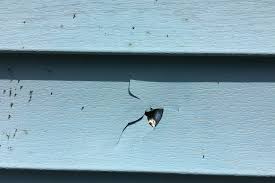How much compensation can you get from a housing disrepair claim?

If your rental property has deteriorated in terms of repair since you took over and notified your landlord in writing, you may be able to file a housing disrepair compensation claim.
If you believe your landlord has not complied with the Lease Terms and Conditions, you can send a written notice to them. Your landlord must then be given adequate time to remedy the problem. If your landlord does not make the required repairs, you may seek compensation. You can find out more about making a claim ant compensation from Mark Reynolds Solicitors.
What is the procedure for seeking compensation for housing deterioration?
The amount of compensation a tenant may receive is determined by a variety of criteria. The length and severity of the housing disrepair problem will be considered, as well as how it impacted you and your family daily.
The pay out will include the expense of necessary house repairs, as well as any legal fees incurred in making the claim. The ‘pain, suffering, and loss of pleasure’ caused by living in a property with a disrepair problem or having to leave due to structural damage will be a major element of the equation.
What is the definition of pain, suffering, and loss of amenity?
If a tenant has been harmed as a result of the housing disrepair, the landlord has failed to provide them with adequate quantities of living conveniences in return for the rent they agreed to pay.
If you are suffering from a loss of amenity as a result of the housing disrepair, such as having to look for alternative accommodation, then this is known as ‘pain, suffering, and loss of amenity.’
What is the procedure for receiving compensation for housing disrepair?
The value of any housing disrepair compensation will be determined using the rent paid on the property. The payment made will be a percentage of the rent that has been paid while the tenant resided in the property with disrepair problems. Even if Housing Benefits provided by a local authority cover the tenant’s rent, he or she may still be eligible for compensation.
The amount of compensation you receive depends on the severity of the deterioration. If the home is entirely inaccessible, you will get 100% compensation. This degree of payout is unusual; typical payouts range between 25 and 50 per cent of the rental income of a property.
What are the advantages and disadvantages of this system? How can it be put into action in the real world?
If the property had a severe damp problem for a year and the monthly rent was £1000 per month, then the total period’s rent would be £12000. If the claimant was given 40% compensation, the tenant would get £4800 as a result.
Does your rented property have a housing disrepair problem?
If the property you’re renting has a housing disrepair problem and the landlord isn’t responding to your requests for it to be addressed, you should contact an attorney right away.
For assistance on a no-win, no-fee basis, get in touch with Mark Reynolds Solicitors immediately to learn more.




